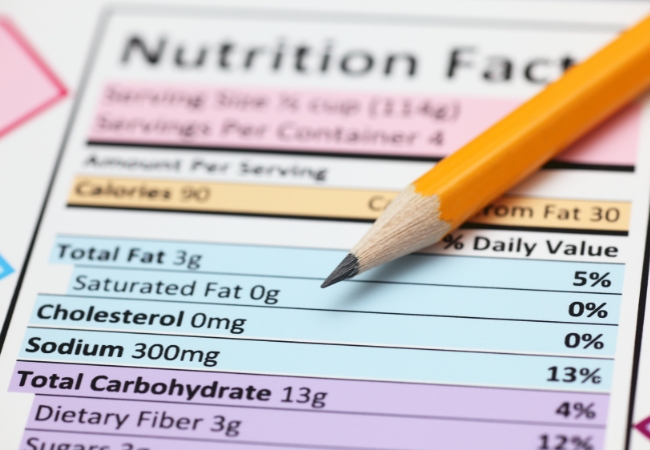Discuss common signs of nutritional deficiency in adults and provide strategies for addressing these signs to promote better health and vitality.
Proper nutrition is essential for maintaining optimal health and well-being in adults. However, inadequate dietary intake or poor nutrient absorption can lead to nutritional deficiencies, significantly impacting overall health.
Signs of a lack of nutrients in the body
1. Hair loss
Hair loss is a normal phenomenon. However, if you find that your hair is falling out too much, you may even gather your hair in a bunch after waking up or after washing your hair, this is an unusual sign. Excessive hair loss can also be one of the telltale signs of a lack of iron, calcium, … and some other nutrients. You can go to medical facilities to be examined by doctors, perform blood tests, etc. to find out the exact cause and promptly treat.
2. Burning sensation in the mouth
If your mouth is dry, numb, almost like a burn, don’t be subjective. This is most likely a burning mouth syndrome caused by a lack of B vitamins.
3. Unexplained fatigue
There are many reasons why you are tired, such as lack of sleep, illness, or a psychological problem. However, if you are tired for no apparent reason, it is likely that your body is suffering from nutritional deficiencies, especially vitamin D deficiency.
4. Less exposure to sunlight
Exposure to the sun in the early morning always helps your spirit to be more alert, happier and especially helps the body absorb a significant amount of vitamin D. Therefore, we can see many cases of staying indoors for too long, having little exposure to the sun or living in winter weather conditions without sunlight, … often making the body feel tired all the time. uncomfortable, lethargic.
5. Dry skin and lips
Dry skin and lips can be caused by dry weather. However, if it’s not the weather, it’s very likely that dry skin and lips are caused by a lack of vitamin A. Vitamin A is a vitamin that is essential for the growth and maintenance of surface tissues in the body. as well as outside the body.
6. Impetigo (cold sores)
Usually, chapped lips are caused by dry skin and this condition can be improved if you use lip balm. If you see a sore on the sides of your mouth, which is easy to irritate and can become scarred, and even if you apply cream, it does not improve, you are most likely suffering from an iron or vitamin B deficiency.
7. Glossitis
Tongue pain, glossitis (tongue becomes smoother, tongue becomes loose or even ulcerated, tongue swells) is most likely due to iron deficiency or vitamin B deficiency. , especially vitamins B3, B9 and B12.
8. Acne or rashes
Acne or rashes can be caused by many causes, such as liver problems, endocrine problems, etc. However, this is also a sign. Warning signs of zinc deficiency are common in people who regularly eat processed foods, or drink alcohol.
9. Bruises on the skin
Collagen is very important in the cohesion of tissues and organs, especially skin cells. Vitamin C is essential for the formation of collagen fibers. If you have a vitamin C deficiency, it will affect the formation and activity of collagen and thereby increase the risk of many bruises on the skin.
10. Bleeding gums and slow-healing skin wounds
This is also a sign of vitamin C deficiency. Those at high risk for this condition are smokers, the elderly or pregnant women. and are breastfeeding.
11. Sleep problems
Some sleep problems such as insomnia, frequent difficulty sleeping if not due to overeating, this is most likely caused by an imbalance of vitamins and minerals. As a result, you can tweak your diet to make it easier to fall asleep and sleep better.
12. Mood Disorders
Nutritional deficiencies can impact mental health and contribute to mood disorders. Depression, anxiety, irritability, or mood swings can be linked to deficiencies in omega-3 fatty acids, B vitamins, or magnesium.
13. Cognitive Difficulties
Nutritional deficiencies can affect brain health and cognitive function. Memory problems, difficulty concentrating, and mental fog may indicate deficiencies in omega-3 fatty acids, B vitamins, or antioxidants.
14. Digestive Issues
Deficiencies in certain nutrients can lead to digestive problems. Symptoms such as constipation, diarrhea, bloating, or poor appetite may indicate inadequate intake of fiber, probiotics, or essential vitamins and minerals.
Addressing Signs of Nutritional Deficiency

- Balanced Diet
Ensure a well-balanced diet that includes a variety of fruits, vegetables, whole grains, lean proteins, and healthy fats. This helps provide a broad spectrum of essential nutrients.
- Nutrient-Dense Foods
Incorporate nutrient-dense foods into your diet, such as leafy greens, nuts, seeds, legumes, and lean meats or plant-based proteins. These foods are rich in vitamins, minerals, and antioxidants.
- Supplementation
If deficiencies persist despite dietary improvements, consult with a healthcare professional to determine if supplementation is necessary. They can recommend appropriate supplements based on your specific needs.
You can refer to some supplements here to be able to provide the body with all kinds of nutrients in a complete way. Make sure that you have carefully researched reputable, well-tested supplement brands and must consult a doctor or medical professional for clear advice, to avoid affecting your health.
- Regular Check-ups
Schedule regular health check-ups to monitor your nutritional status. Blood tests can help identify deficiencies, allowing for targeted interventions and adjustments to your diet or supplementation routine.
- Seek Professional Guidance

If you suspect nutritional deficiencies, seek guidance from a registered dietitian or healthcare professional. They can provide personalized recommendations and meal plans tailored to your specific needs and lifestyle.
Conclusion
Recognizing and addressing signs of nutritional deficiency in adults is crucial for maintaining optimal health and well-being.
By adopting a balanced diet, incorporating nutrient-dense foods, considering supplementation when necessary, and seeking professional guidance, individuals can overcome deficiencies and promote better overall health. Prioritizing nutrition ensures that the body receives the necessary nutrients for optimal functioning and vitality.
Remember, small changes in your diet can make a significant difference in your long-term health.



